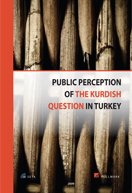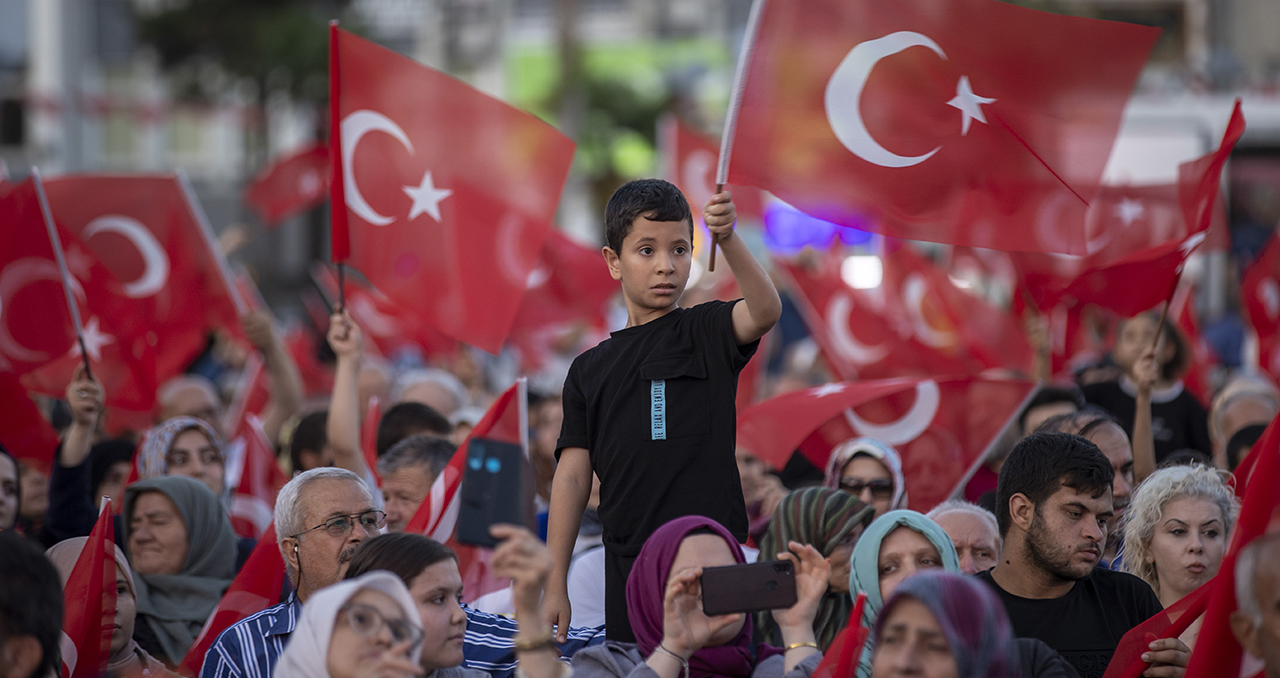2007 was no ordinary year for Turkey. Turkish democracy went through major trials. Turkish society became more confident in the exercise of its democratic rights. The Turkish economy continued to grow. Turkey became more active in regional politics. Stability and prosperity shifted the focus from narrow ideological debates to a larger vision for Turkey in the 21st century. But are any of these a guarantee for more progress in Turkey? To put it more bluntly, are the events of 2007 a temporary change of climate, or do they point to a deep-seated change in Turkish politics and society?
The process that led up to the July 22 elections and the election of Abdullah Gül as president started out as a major blow to democracy. The April 27 e-memorandum by the military was interpreted as the beginning of a long-term political crisis between the army and the Justice and Development Party (AK Party) government. The usual scenario was put in place: The military will make a declaration; it will be covered extensively by the media; the Republican People’s Party (CHP) and its cohorts will escalate the tension; the so-called independent judiciary and big business will warn of an imminent crisis; and finally the international media will push ahead with a wide agenda of political crisis in Turkey.
None of this happened. Despite the fears, the elections process consolidated Turkish democracy. The winner was not only the AK Party with the 47 percent of the popular vote but also the Turkish political system. For the first time in a long while, Turkish voters felt the benefits of political stability and economic prosperity, which, in turn, increased their confidence in the democratic system. The international community also remained confident about the future of political reforms in Turkey at a time when political crises swept through the region from the Balkans to Lebanon and Pakistan.
This is extremely significant for Turkey as it increases the chances of confronting the issues that have crippled the country’s political system and created a caste rule of protected elites and dispossessed masses. Poverty is still a major problem for the AK Party government. But the masses have seen the possibility of influencing the political system through their votes. The opposition is still weak and disorganized. But the opposition parties and their supporters have accepted the rules of the game and cannot afford to seek support from such non-political actors as the military. Power-sharing is still an issue that needs to be addressed from politics to the economy. But the chances of distributing resources and wealth equally are increasing.
As a result of these tectonic shifts, the two issues of religion and ethnicity have taken a new turn in Turkey. Even though the erstwhile fears of the old elite continue to block their vision, neither of these issues is taboo anymore. The present and future role of Islam in Turkish society will continue to be debated with passion. But I don’t think the “religion card” of the old guards of the regime will be effective against the AK Party government. It was tried many times, most recently with Gül’s wife and her headscarf, but it did not work. The vast majority of Turkish people do not consider living a religious life to be against having a modern, prosperous country. The same majority do not see the headscarf as a symbol of political Islam or an exclusive mark of the AK Party. Turkish society has once again showen its confidence in a “conservative modernity.”
The Kurdish issue is the second major problem that took a new turn in 2007. The distinction between the Kurdish issue and PKK terrorism became clearer with a sense of urgency. A national consensus emerged regarding the Kurdish issue and its root causes. Now everybody wants the issue to be resolved without delay. This means fighting terrorism effectively but doing much more in the political, cultural and economic arenas. 2007 was the year when the issue was discussed









